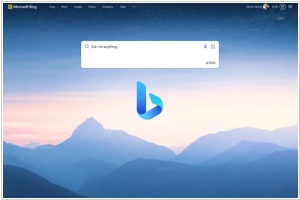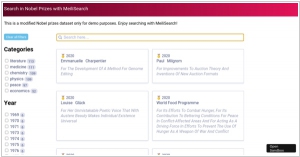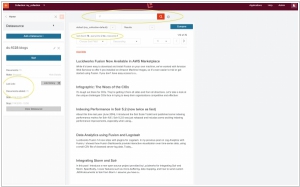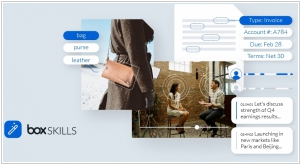AI for Search
Updated: July 31, 2023
AI for search refers to the integration of artificial intelligence technologies and algorithms into search engines and information retrieval systems. AI-powered search engines use machine learning and natural language processing to understand user queries more effectively, improving search accuracy and relevance. By analyzing user behavior, search history, and contextual information, AI-driven search engines can provide personalized search results, tailoring the search experience to individual preferences and needs. Additionally, AI for search enables advanced features like semantic search, entity recognition, and sentiment analysis, enhancing the understanding of user intent and the context behind their queries. This results in more accurate and contextually relevant search results, empowering users to find the information they need faster and with greater precision, making AI for search an essential component in modern information retrieval systems.
See also: Top 10 ECM software
See also: Top 10 ECM software
2023. Microsoft launches new Bing and Edge browser with ChatGPT

Microsoft is intensifying its efforts to compete with Google by making significant advancements. In an official announcement, the company confirmed the integration of OpenAI's GPT-4 model into Bing, fulfilling long-standing rumors. This integration introduces a ChatGPT-like interaction within the search engine. As expected, the updated Bing now presents a chat option in its toolbar, leading users to a conversational experience reminiscent of ChatGPT. Additionally, Microsoft is launching a fresh version of its Edge browser, incorporating these new AI capabilities into the sidebar. With this enhanced browser, internet users can now leverage AI assistance to summarize search results and engage in conversations with AI chatbots to obtain answers to their queries, among other functionalities.
2022. Meilisearch lands $15M investment to grow its ‘search-as-a-service’ business

Meilisearch, the company responsible for the development of the open-source search engine project with the same name, has successfully raised $15 million in a Series A funding round. Meilisearch sets itself apart from freely available search engine frameworks like Elasticsearch by catering to frontend applications across various domains, going beyond specific use cases such as e-commerce discovery. With the utilization of natural language processing, Meilisearch strives to enhance its understanding of user queries within any application, service, or website where it is implemented by developers. Meilisearch supports multiple major languages and provides search filters such as price and date, along with customizable ranking rules. Additionally, it effectively handles typographical errors and mistakes to ensure a seamless search experience without compromising accuracy.
2019. Salesforce brought AI power to its search tool
Salesforce has unveiled Einstein Search, an AI-powered search tool catering to Salesforce users, aiming to guide them directly to the precise information they seek. While it may not possess the broad knowledge base of Google regarding topic popularity, Einstein Search can learn from individual behaviors and tailor responses based on the user's profile, including geographical location and past activities, resulting in more meaningful answers. Furthermore, it enables users to input search queries using natural language, comprehends the intent, and delivers relevant results accordingly. Moreover, leveraging its understanding of your preferences and search parameters, the intelligent engine can predict your most probable desired actions and offer quick action buttons within the search results, streamlining the process and reducing time to action.
2019. Workplace AI assistant Capacity raised $13.2M
Capacity (former Jane.ai), the startup dedicated to addressing the problem of information fragmentation within enterprises, has successfully raised new funding to tackle the issue through its corporate data search platform. The company has recently concluded a Series B funding round, securing an impressive $13.2 million. Capacity empowers its customers to consolidate all their organizational data onto a unified platform, facilitating enhanced accessibility to company information for internal personnel. This streamlined process is facilitated by a chat interface and directory, enabling employees to effortlessly search for information. The platform offers a high degree of flexibility in customizing how queries are answered and determining the appropriate routing to an on-site representative when necessary.
2019. Lucidworks raises $100M to expand in AI-powered search-as-a-service for organizations

A promising startup known as Lucidworks has successfully secured $100 million in funding. Lucidworks has developed an AI-powered engine specifically designed to assist individual organizations in delivering personalized search services to their users. The company firmly believes that its approach can yield superior and more relevant search results compared to other existing search services in the market. Notably, alongside Lucidworks, there are several companies that have taken the initiative to construct search-as-a-service solutions from scratch. Examples include Elastic, Sumo Logic, and Splunk (interestingly, Lucidworks was founded by the same team behind Splunk), which cater to both internal back-office processes and customer-facing services.
2019. AlphaSense, a search engine for business, raised $50M
AlphaSense, a platform that enables companies to swiftly gather market intelligence on specific trends and industries to facilitate informed business decisions, has successfully concluded a $50 million Series B funding round. The company intends to utilize this investment to further enhance its product and expand into additional verticals. An intriguing aspect of AlphaSense is its dual focus on aggregating user requests and proactively delivering information based on previous search parameters. Currently, the platform provides information only, but there is a clear potential to develop services that leverage this information to perform actions such as adjusting asking prices for sales and other transactions. With approximately 1,000 clients, AlphaSense primarily serves investment banks and related financial services companies.
2017. Box applied AI to content management

Box has recently introduced Skills and its accompanying SDK, known as Skills Kit. These new offerings empower organizations and developers to extract valuable insights from their extensive content repositories within Box datasets, utilizing machine learning techniques to unlock the inherent commercial value of their content. Box is currently showcasing three initial Box Skills, leveraging machine learning tools from Google Cloud and Microsoft Azure to address common business use cases. These include image recognition, which involves detecting objects and concepts within image files, performing optical character recognition (OCR) to extract text, and automatically assigning keyword labels to images for efficient metadata creation. Additionally, Box Skills encompass audio transcription and analysis, enabling the creation and indexing of text transcripts from audio files for seamless search and manipulation across various use cases. Lastly, video indexing employs text transcription, topic detection and indexing, and facial recognition to analyze video files comprehensively.




